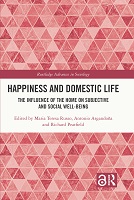Chapter 12 The “Neighbourhood” as a Pivotal Element of the Infrastructure of a Flourishing Society
Proposal review
Abstract
This paper examines the vital contribution of neighbourhoods to the flourishing of individuals and families. Our analysis complements that of some other essays in this volume, which consider the contribution of the life of the family to a flourishing and functional social order. The central hypothesis to be explored is that (a) the neighbourhood plays a critical role, not easily replaced by other types of community such as cities and nations, in supporting the full development of individuals and families and integrating them into a multi-family community; and (b) the socializing function of neighbourhoods may be greatly enhanced by deliberate human interventions at the level of urban design, institutional design, social policy, and individual action (including several measures to be considered in this paper). The paper is a philosophical reflection on our shared experiences of neighbourhoods and family life, rather than an empirical study of a specific neighbourhood or set of neighbourhoods. Drawing on public knowledge and common experiences, we set out to explore the critical role of the neighbourhood as a structure that supports the full development of individuals and families, and integrates them into the life of a larger community.
Keywords
neighbourhoods, family life, social order, multi-family community, individual development, urban design, institutional design, social policy, individual action, shared experienceDOI
10.4324/9781003265702-17ISBN
9781032208831, 9781032208855, 9781003265702Publisher
Taylor & FrancisPublisher website
https://taylorandfrancis.com/Publication date and place
2022Grantor
Imprint
RoutledgeClassification
Sociology


 Download
Download